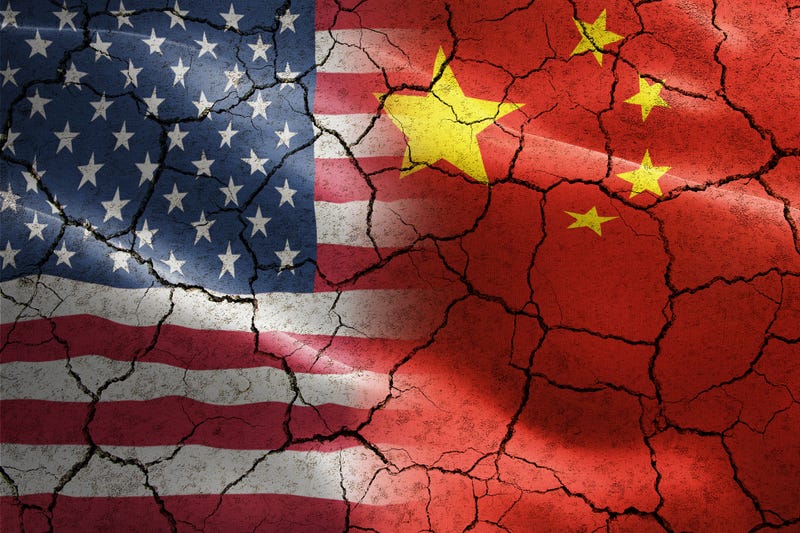
KANSAS CITY - State lawmakers across the United States have introduced at least 240 anti-China proposals this year, aiming to ensure public funds don't buy Chinese technology or even T-shirts, coffee mugs, and key chains for tourists. They're also targeting sister-city relationships between American and Chinese communities.
After years celebrating trade ties with China, states don't want police to buy Chinese drones, government agencies to use Chinese apps, software or parts, or public pension systems to invest in Chinese companies. A new Kansas law covers artificial intelligence and medical equipment.
The push started well before President Donald Trump imposed 145% tariffs on China, but his posture is encouraging state officials, particularly fellow Republicans.
Anti-China proposals have been introduced this year in at least 41 states, but mostly in GOP-controlled legislatures, according to an Associated Press analysis using the bill-tracking software Plural.
Playing a "patriotism card” against China resonates with U.S. voters, said David Adkins, a former Kansas legislator who is CEO of the nonpartisan Council on State Governments.
“Politicians of both parties, at all levels of government, pay no price for vilifying China,” Adkins said in an email.
Kansas House Majority Leader Chris Croft, a retired Army colonel, said countering China is a “joint effort” for states and the U.S. government. He championed a new law greatly limiting property ownership within 100 miles of a military installation in Kansas by firms and people tied to foreign adversaries — China, but also Cuba, Iran and North Korea.
“All of us have a part to play,” Croft said.
Further limiting foreign property ownership remains popular, with at least 46 proposals in two dozen states, but critics liken imposing restrictions to selling snow shovels to Miami residents.
Together, Chinese, Iranian, North Korean and Cuban interests owned less than 1% of the nation’s 1.27 billion acres of agricultural land at the end of 2023, according to a U.S. Department of Agriculture report. Chinese interests’ share was about 277,000 acres, or two-hundredths of 1%.
Trump's rhetoric encouraged the push since his first term, said Kyle Jaros, an associate professor of global affairs at the University of Notre Dame who writes about China’s relationships with U.S. states. Then, the COVID-19 pandemic soured American attitudes.
“The first Trump administration had a very different message than the preceding Obama administration about state and local engagement with China,” Jaros said. “It tended to not see the value.”
One of Wichita's sister cities is Kaifeng, China, a relationship that began more than 39 years ago.
